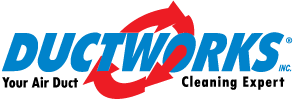We are all looking for ways to save money, one way to save money is to reduce energy consumption. Did you know that in a typical home 45% of the energy cost go to Heating and cooling? The US Department of energy estimates that 25 – 40% of the energy used for heating and cooling a typical home is wasted.
Whether your heating or cooling system uses natural gas, fuel oil or electricity it is a good idea to make it as efficient as possible. Using less energy saves money and is better for the environment.
- Install a programmable thermostat: these thermostats automatically turn down your system during periods when your typically away from home.
- Change your air filter: Make sure to change your air filter regularly. A clogged filter will restrict air flow and cause your system to work harder and use more energy. Most experts reccomend changing your air filter every two months.
- Seal your air ducts: Sealing your ducts will also save you money in the long run. You could be loosing nearly all your heating and cooling before it reaches your vents.
- Clean your heating and cooling system: This is more than just duct cleaning, it involves cleaning all the components that the airstream touches in your heating and air conditioning system. NADCA recommends cleaning the furnace, cooling coils, blower motor, and the ductwork. Every part of the system is checked and cleaned, not just the ducts.
So how does cleaning your heating and cooling system save you money?
A dirty cooling coil reduces efficiency: to cool your home air is blown across cold metal coils. When the coils get clogged with dirt, airflow is restricted and air can no longer contact the metal. This blocks airflow and limits the coils ability to properly cool the air. Even in the winter months these dirty coils contine to reduce air flow through your furnace. This means that the system losing efficiency all year long.
Duct Cleaning
Proper cleaning of an entire heating and cooling system takes technical skill and attention to detail, that is why it is important to rely on a company that is specifically trained and experienced in this type of cleaning. NADCA members specialize in optimizing the efficiency and life of your system.
Remeber clean systems use less energy and clean systems last longer saving you money now and in the years to come.

